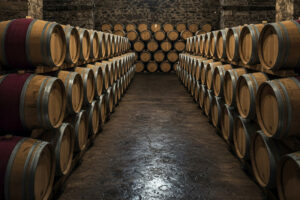The alarm has been sounded in many parts of the globe and most experts agree that vineyards around the world are increasingly affected by wood diseases of various kinds, and the situation is very similar to the phylloxera crisis that devastated European wine in the nineteenth century. "Wine Spectator" has gathered opinions from Spain to California, Switzerland, Australia and France, that winemakers are assisting to the rapid growth of diseases and fungi.
The alarm is shared by names such as David Gramaje, pathologist at the Instituto de Ciencias de la Vid y Rioja wine in Spain, Richard Smart, one of the most prominent consultants on Australian viticulture area and beyond, Kendra Baumgartner at University of Davis, who claims that “every single vineyard in California is plagued, or is becoming so, by at least one vine disease of varying degrees of severity, and the situation is exactly the same as the phylloxera crisis”.
The situation should not be underestimated, according to experts, as there has already been a major economic impact. According to the Institut Français de la Vigne et du Vin, for example, 12% of the vineyards in France has been made unproductive by the disease, and 5 -6% must be replanted each year. All of this "costs" the winemaking industry 1 billion US Dollars annually.
The debate is passionate on these issues. Some are accusing the nurseries, some certain practices in the vineyard, some the mechanization of viticulture, which according to critics creates more damage to vines, encouraging the development of diseases like phylloxera, for example.
And the real problem is that, despite the progress of scientific research in the field of viticulture, when certain illnesses spread in the vineyard, there are not many solutions, except to cut the diseased plants and replant.
This is why researchers say it is more important than ever to continue research, evaluate the most effective actions to put in place, coordinate them globally as much as possible, and act quickly, so that the winemakers do not find themselves immersed in a very serious crisis, like the phylloxera one.
“It is a bit exaggerated To talk about alarmism today”, Leonardo Valenti, professor of viticulture at the University of Milan told WineNews. “In any case we must keep our guard up so that this catastrophe does not actually materialize. These diseases are in Italy, too and we have been dealing with them for over 20 years. Several research institutions are working on this issue and have had very good results. Generally speaking, at least Here in Italy, the situation is not dramatic. Some disease affects 2% of vineyards in Italy every year and we intervene as best as we can. To talk about a situation similar to the phylloxera crisis seems excessive to me; nevertheless, we must keep our guard up so that we can limit and keep the situation under control”.
Professor Attilio Scienza, one of the world’s leading experts in viticulture and enology, expressed the same line of thought. “We must be attentive, but not catastrophic, because we are now able to monitor and manage this situation. There have always been diseases; what has changed are the techniques to combat them. It is clear that increase in trade, spread of viticulture where it had never before been, and other factors such as aging of vineyards, less resistant plants, intensive and often aggressive viticulture and perhaps less accurate and controlled pruning, have also led to a greater spread of diseases such as downy mildew, powdery mildew and Esca. Part of the reason is climate change, which sometimes favors the life of the carriers of these diseases where none had ever been detected. Not to mention that in time fungi, bacteria and so forth develop resistance to treatments. For all these reasons, in the future we must think of growing less intensive and aggressive vines, rotating defense products because they create less resistance, and of course research genetic varieties more resistant to disease by developing systems for the expression of an already existing gene pool potentially capable of defending vines that have not fully developed. It is good to stay vigilant. All this psychological terrorism seems excessive to me”.
Copyright © 2000/2026
Contatti: info@winenews.it
Seguici anche su Twitter: @WineNewsIt
Seguici anche su Facebook: @winenewsit
Questo articolo è tratto dall'archivio di WineNews - Tutti i diritti riservati - Copyright © 2000/2026






































































































































































































